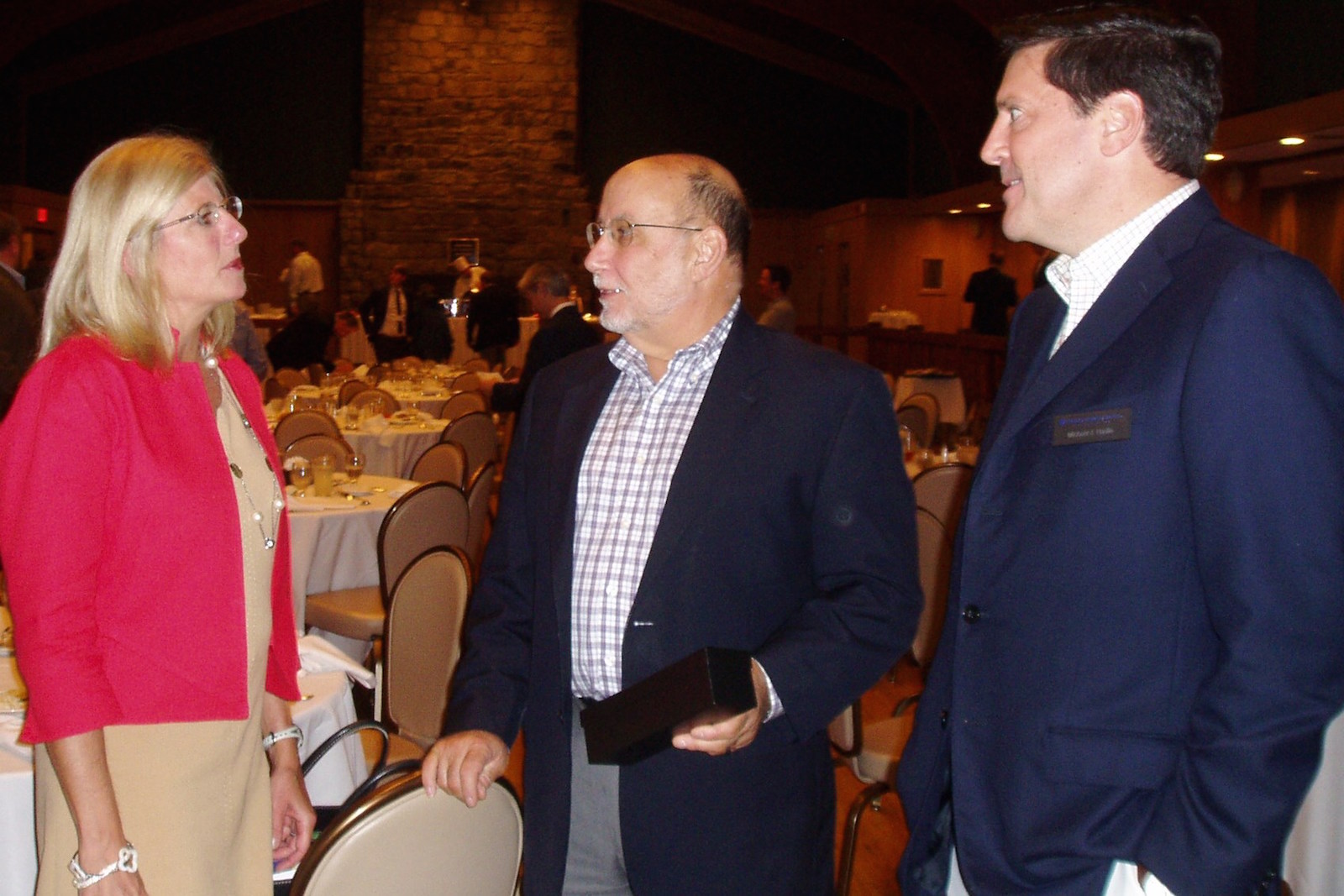By GEORGE HOHMANN
For the West Virginia Press Association
WHEELING, W.Va — The energy sector needs to rebrand itself as the industry with solutions, a United States Chamber of Commerce executive told oil and gas executives Tuesday.
“Energy is the solution to economic problems; to our geopolitical challenges; to competitiveness,” said Karen Harbert, president and chief executive officer of the U.S. chamber’s Institute for 21st Century Energy. The institute endeavors to build support for meaningful energy action through policy development, education and advocacy.
Harbert spoke at the West Virginia Oil and Natural Gas Association’s 100th Anniversary Annual Meeting at Oglebay Resort. West Virginia University President E. Gordon Gee and deans from the university’s colleges of law, engineering, and agriculture/forestry were among the other speakers.

It is forecast that unconventional oil and gas development will spur $5.1 trillion in investment over the next 10 years and create close to four million jobs, Harbert said. The demand for energy is forecast to go up by 56 percent by 2040.
“We’ve got the resource base to be the energy superpower if we want to,” she said. “America leads in recoverable fossil fuel supplies. Between Canada, the United States and Mexico, that’s the new center of power in the energy market — but we’re going to have to capture that opportunity.
“This isn’t about just Texas, Oklahoma, and Alaska,” she said. “These shale basins are all over the country. Thirty-three states produce oil, gas or coal and those that don’t are contributors to the supply chain. Every state has equity in this.”
As for natural gas, “in 2000 shale gas provided 2 percent of our supply,” Harbert said. “By 2040 it will be over 50 percent. Tell me an industry that has revolutionized itself faster than that. There isn’t one.
“Everybody wants high tech, especially the millennials,” she said, referring to people who reached young adulthood around the year 2000. “No other industry is innovating more than you. Claim that. You’re high tech. People want to be in the ‘high-tech energy business,’ not ‘the fossil-fuel industry.’ Think about how high-tech your operations really are.”
To make the most of the nation’s resources, Harbert said the energy industry needs access to federal lands. She said most U.S. coastal areas are closed to drilling, drilling in Alaska is limited, and the federal government has been retiring federal lands in Western states that the industry needs for pipelines. Meanwhile, there are almost 475 state or local fracking bans across the country.
“We’ve got to win the court of public opinion,” she said, adding that now is the time to do so because the price of energy is low and people have a more favorable opinion of the industry.
“We’ve got to do our business differently” by focusing on education; myth-busting, and thwarting unfair or unbalanced regulations, she said.
WVU’s Gee spoke during a panel discussion that included Greg Bowman, dean of the College of Law; Gene Cilento, dean of the College of Engineering; and Dan Robison, dean of the Davis College of Agriculture and Forestry.
“In this state the responsible role of the university is to be engaged with the business community,” Gee said. “In the end it’s about changing the arc, the direction of this state. The university is about ideas and turning those ideas into jobs.”
All three deans who appeared with Gee agreed that the university is intent on fostering collaboration across academic disciplines and teaching youngsters to work in teams.





